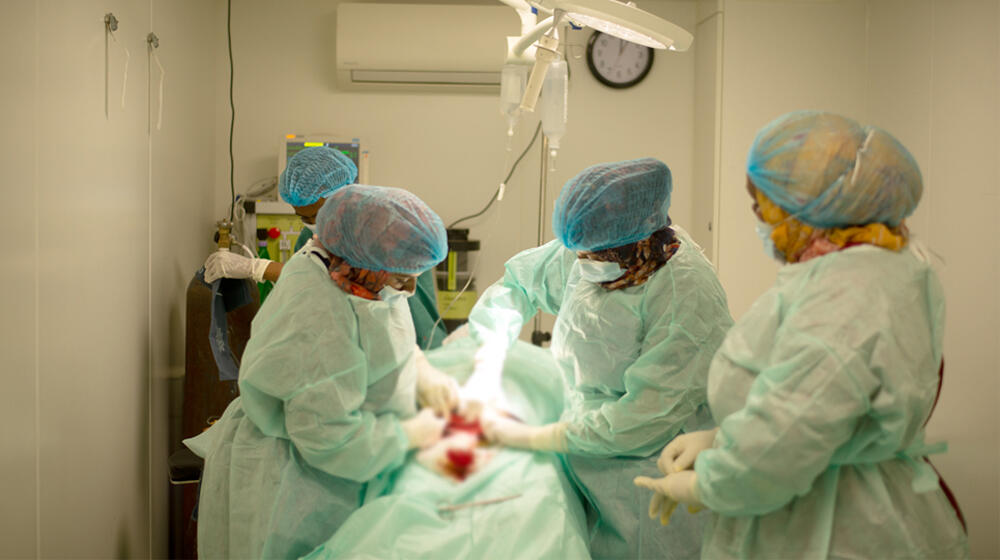After being carried for three kilometers in rain and mud, Nasreen finally reached the hospital. She was eight months pregnant – and going into labor. Suffering from pre-eclampsia, a serious blood pressure condition that develops during pregnancy, Nasreen was in a critical condition.
The rainy season had arrived a month earlier in July, flooding many parts of Gedaref state and cutting off Nasreen’s village. Although with difficulty, Nasreen was still able to access the nearby UNFPA Field Hospital in Tunaydbah Refugee Settlement for Ethiopian Refugees.
In the delivery room, Nasreen’s blood pressure rose dramatically and she lost consciousness. The doctors decided that an emergency C-section was critical to save her life and that of her unborn child.
Nasreen was taken into the operating room where she gave birth to a baby boy, ‘Semir’. Born prematurely and weighing at just 1.8 kg, he was placed in an intensive care incubator and monitored closely for ten days.
“This field hospital saved my daughter’s life. Without it, we would have carried her for hours. I do not think she would have survived.” Nasreen’s mother.
Since the onset of the Ethiopian refugee emergency in Sudan in November 2020, UNFPA has been providing life-saving reproductive health services to affected populations in Gedaref. A collaboration with UNHCR and INGO Alight, the UNFPA field hospital opened its doors in March 2022 in Tunaydbah Refugee Settlement to serve both refugees and the vulnerable host communities. As of October 2022, the field hospital has served over 40,000 patients and ensured more than 130 safe births.
The field hospital guarantees access to essential health services during the annual rainy season when the whole Mafaza locality, where Tunaybah refugee camp is located, and parts of the neighboring Al Fao locality become completely cut-off from other parts of Gedaref.
“Nasreen is one of thousands of women in Sudan who struggle to access health facilities, especially during the annual rainy season. Sadly, many arrive too late. UNFPA is working through the field hospital, mobile clinics, midwives and supported-health facilities across the country to ensure that every woman receives proper maternal health care. We call on our partners to intensify support to meet the increasing needs.” Mr. Mohamed Lemine, UNFPA Sudan Representative.
Support from the U.S. Department of State: Bureau of Population, Refugees, and Migration has been key to the establishment and operation of the field hospital. Nonetheless, additional support in the form of USD 800,000 is required to sustain the operations of the field hospital in 2023. More is needed to make sure that women like Nasreen continue to have access to the care and support they need.


